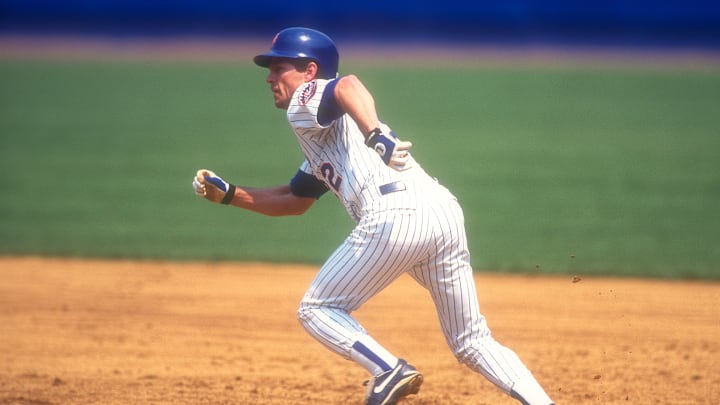In the 1980s, Brett Butler was one of those prolific base stealers your kids today wouldn’t believe ever existed. From 1983-1993, he stole at least 30 bases each year. He continued to use his speed as a weapon into the latter part of his career, including the 90 games he played with the New York Mets in 1995.
Butler arrived to Flushing via free agency on April 11, 1995. After several successful years as a member of the Los Angeles Dodgers in the earlier part of the decade, Butler traded in his Dodger Blue for Mets’ blue and orange.
It wouldn’t last long. Before the end of the 1995 season arrived, Butler was traded away from New York.
Brett Butler’s brief stop with the Mets in 1995
The time between the end of the 1994 season and the start of the 1995 campaign put players in an odd spot. Butler was coming off of shortened season where he hit .314 and stole 27 bases in 111 games played.
This wasn’t the end of his success. In his 90 games with the Mets in 1995, Butler slashed .311/.381/.392 in 418 plate appearances. Already in his age 38 campaign, the still speedy outfielder added 21 stolen bases.
The 1995 season is mostly forgotten for Mets fans because of how poorly many years prior had gone. Butler wasn’t a part of the conclusion this year. On August 18, he was traded back to the Dodgers for a pair of minor leaguers who never did see major league action. He would actually remain with the Dodgers for two more seasons after, continuing to hit well enough for a part-time role.
Butler was the complete opposite of a trade deadline acquisition. A three-month rental at the start of a shortened season, he was someone the Mets deployed in center field for their 69-75 club.
The Mets ended up making several notable trades in the middle of the 1995 season. David Segui went to the Montreal Expos, Bobby Bonilla was traded to the Baltimore Orioles, and Bret Saberhagen joined up with the Colorado Rockies. The Butler trade to the Dodgers was the last of those moves to completely rid themselves of the pre-1996 players they had. The Mets would then go out and make some fine additions before the 1996 season including the free agent signing of Lance Johnson and the trade for Bernard Gilkey as the highlights.
